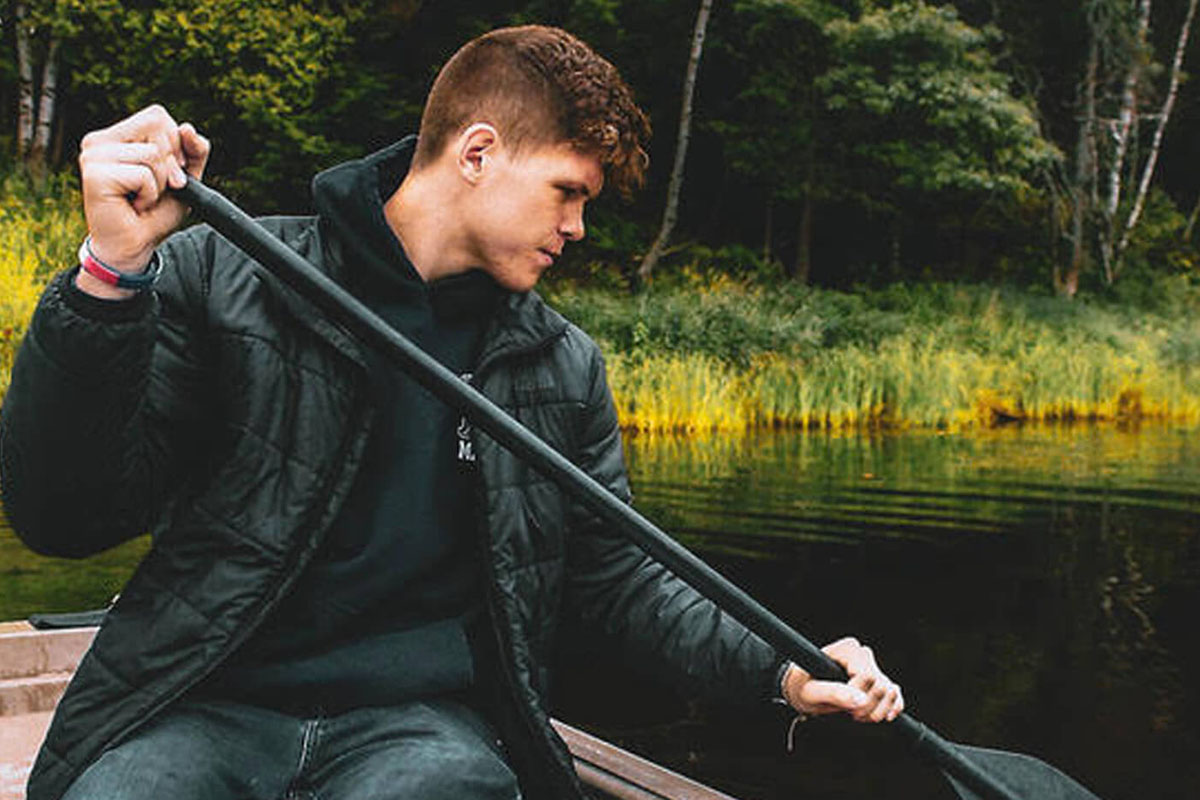
Nolan Altvater: Honorable Mention for the Udall Scholarship in Native American policy
Nolan Altvater of Milford, a University of Maine rising senior majoring in secondary education and minoring in English, was selected as one of 55 students nationwide to receive Honorable Mention for the Udall Scholarship in the Native American policy category.
The Udall Foundation awards scholarships, fellowships, and internships for study in fields related to the environment and to American Indians and Alaska Natives in fields related to health care and tribal public policy; provides funding to the Udall Center for Studies in Public Policy and to the Native Nations Institute to conduct environmental policy research, research on American Indian and Alaska Native health care issues and tribal public policy issues and training; and provides assessment, mediation, training, and other related services through the John S. McCain III National Center for Environmental Conflict Resolution.
As a member of the Passamaquoddy Tribe at Pleasant Point, Altvater is a Wabanaki Youth in Science student, and a McGillicuddy Humanities Center Fellow at UMaine. He is the first UMaine student to receive an Honorable Mention from the Udall Foundation in the Native American category since at least 2001. UMaine’s last Honorable Mention in the environmental category was in 2011.
“Being nominated as an Honorable Mention for the Udall Scholarship makes me feel very hopeful for not only my project’s interest, but for all of the applicants’ research whose goals include improving and or raising awareness of Native American policies and the environment around the country,” says Altvater, who received support for his application from the Office of Major Scholarships in Estabrooke Hall. “It’s very comforting to both know and be a part of a community that share the same interests and goals for change.”
What is the Tribal policy project you focused on in your Udall application?
My project focused on developing a writing community in order to create a resource to work toward a better implementation of the Wabanaki Studies Law (LD 291). Maine legally requires Wabanaki history be taught in K–12 education, but gives the department of education the decision to choose who has the narrative power in relaying the information. This leads to many issues, such as the misunderstanding and falsification of Native American culture and history while contributing to the issue of Maine’s education system not meeting the needs of Wabanaki students. Furthermore, the statistics revolving around Native students in education is astoundingly low, which is an issue my project works towards improving.
What did you learn during the application process?
This was actually my first major scholarship application that I have completed in my academic career. It was very deep and detailed; ensuring that the Udall faculty understood my project from the foundation up. The knowledge I gained from the experience is that having assistance from mentors and the faculty at the Office of Major Scholarships on campus. I wouldn’t have been able to produce as strong of an application if it wasn’t for the guidance and feedback I had from the community at UMaine that helped.
Tell us about the research, internships or scholarly pursuits you are involved in as a student.
At UMaine, I am very actively involved with a community that shares the same interests of decolonization and institutional changes. My current research as both a Wabanaki Youth and Science intern and a McGillicuddy Humanities Fellow involves Community Based Participatory Research where I am using Decolonizing Methodologies in conjunction with Indigenous Research Methodologies to create a Wabanaki Writing Community in order to create a better understanding of my people’s culture, epistemologies, and ontologies. As a future Indigenous educator, my research also aims to contribute to the push towards needed legislative changes for the better implementation of The Wabanaki Studies Law (LD 291).
Beyond academics, what extracurricular activities occupy your time?
Outside of school, I am very active and enjoy spending time outdoors either working out or hiking. I also enjoy practicing photography, writing poetry and cooking. On top of being active, I also enjoy lazing around my apartment with my cat while reading a book.
What are your plans for after graduation?
Continuing my research and attending graduate school at UMaine.
What difference has UMaine made in your life and in helping you reach your goals?
Given the drastically low percentage of Native Americans continuing their education and attending college, UMaine has given me opportunities that I never thought possible. The community and professors have not only given me a strong foundation for my research, but have helped me find my identity as a Native American college student, which is critical in academic success and quality of life. This university allowed me to take my own interests, create my own goals, and give me the resources that I needed in order to reach them, all while developing essential leadership skills.
How would you describe UMaine’s academic atmosphere?
In my experience, I find UMaine’s academic atmosphere is very holistic. It enabled me to take my life experiences and interests, create challenging academic and career goals, and developed leadership skills while working towards them. It didn’t confine me to take one perspective, rather it challenged me to create my own.
Have you worked closely with a professor or mentor?
Bridie McGreavy, who is a professor in the Department of Communication and Journalism, has gone beyond the role of mentor in my studies at UMaine. If it wasn’t for her guidance, ability to listen and understand, and the helpful resources she shared, my goals would have never come into fruition. She has made my UMaine experience unique and cherishable.
Contact: Margaret Nagle, nagle@maine.edu
